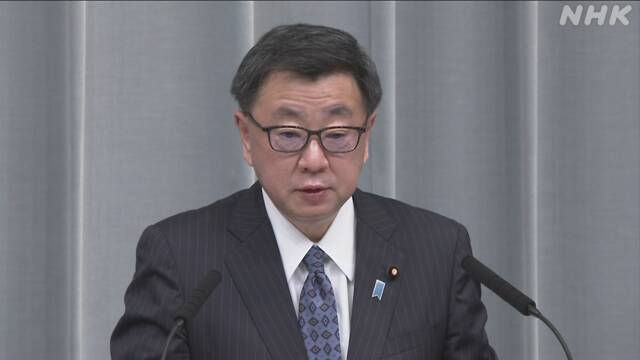As the situation in Ukraine became tense, Prime Minister Kishida held a telephone conversation with German Prime Minister Olaf Scholz, the chair of the G7 = seven major countries.
At the meeting, the two leaders are believed to have confirmed their policy of cooperating with each country ahead of the G7 summit scheduled on the 24th.
Regarding the situation in Ukraine, the situation is becoming tense as Russian President Vladimir Putin unilaterally approves the independence of the region virtually controlled by pro-Russian factions in eastern Ukraine and orders the dispatch of Russian troops to the site. ..
In response to this situation, Prime Minister Kishida held a telephone conversation with German Prime Minister Olaf Scholz, the chair of the G7 = seven major countries, from around 6 pm on the 22nd.
At the meeting, the two leaders exchanged views on the latest local situation and trends in the countries concerned, and said that a series of Russian actions violates Ukraine's sovereignty and territorial integrity and violates international law. It seems that they shared their perceptions.
After that, before the G7 summit meeting scheduled online on the 24th, it seems that they have confirmed the policy of coordinating with each country by coordinating future measures including sanctions.
Chief Cabinet Secretary Matsuno "Holding the UN Security Council Meeting is part of diplomatic efforts"
Chief Cabinet Secretary Matsuno said at a press conference in the afternoon, "We take the fact that the UN Security Council held a meeting in an extremely tense situation as part of the diplomatic efforts of the countries concerned. While paying close attention with serious concerns, we will work with the international community, including the G7 = seven major countries, to coordinate strict measures, including sanctions. "
In addition, when the reporters asked, "Does Russia consider the act of sending troops to Ukraine to be an invasion?" I would like to collect information on the facts and consider future measures. "
The recognition and response of the Japanese government
The Japanese government has strongly accused Russia of violating international law by violating Ukraine's sovereignty and territorial integrity.
In the background, there is a sense of crisis that it is not just a problem in Europe.
We are thinking of China, which is strengthening its marine expansion in the East China Sea, including the Taiwan Strait.
Japan is unacceptable for unilateral attempts to change the status quo by force, and is calling on China to restrain itself by advocating the realization of a "free and open Indo-Pacific" with countries that share values such as democracy.
Under these circumstances, if we allow Russia to use its power, we believe that it could encourage China's move.
"If we can't prevent Russia's military invasion, there will be major crustal movements in the international community. Prime Minister Kishida is also very concerned that it could affect the order of the Indo-Pacific region." increase.
On the other hand, the Japanese government has not disclosed the details or timing of sanctions in the event of a military invasion by Russia.
"It's difficult to decide what to consider as a military invasion, and we need to keep pace with each country," said one Foreign Ministry official.
In fact, senior Biden officials have declined to say whether Russia would consider a military invasion if it sent troops to areas virtually controlled by pro-Russian factions in eastern Ukraine in the name of "peacekeeping."
The Government of Japan is expected to assess the trends of the G7 countries, including the United States, and determine the content and timing of sanctions.

